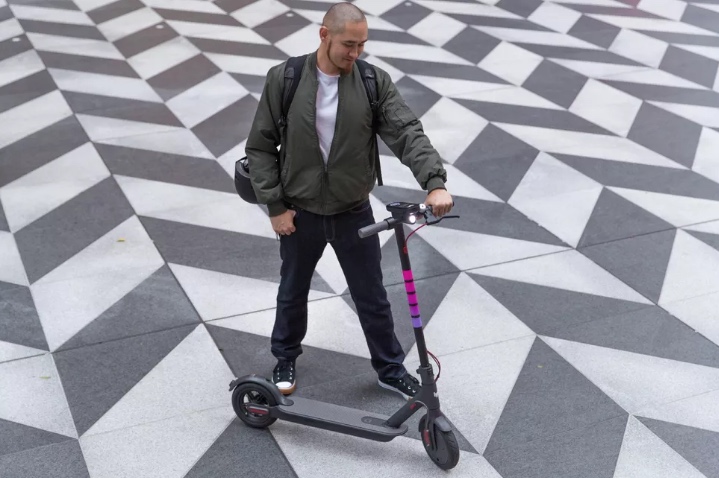
The company that’s aiming to take a million cars off the road by the end of 2019 has just launched an app-based scooter service as part of efforts to achieve its goal.
Ridesharing giant Lyft introduced its electric scooters to the folks of Denver, Colorado on Thursday, September 6, giving everyone with the Lyft app the chance to hire the two-wheelers for short hops across town.
Starting as a one-year trial, the scooters cost a dollar to unlock and 15 cents a minute to ride. When you’re in a service area in downtown Denver, the app shows available scooters on a map. Scan the scooter’s QR code and you’re good to go. If you need to take a short break during the ride, tap “lock” to hold your scooter until you’re ready to set off again. When you’re done, hit “end ride.”
Lyft’s dockless electric scooters, which have a top speed of 15 mph and a range of around 15 miles, will be available to ride between 6 a.m. and 8 p.m., seven days a week.
The company’s ridesharing rival, Uber, is also clamoring to make its mark in the scooter- and bikeshare space, acquiring bikesharing startup Jump in April 2018. Uber chief Dara Khosrowshahi recently said his company intends to focus more on bikes and scooters instead of its core car-based service because the smaller vehicles are better suited to inner-city travel than large cars.
Scootershare services have been proliferating along with bikeshare schemes in cities across the U.S. The sheer number of bikes and scooters on the streets has caused problems in some cities, prompting the authorities to start looking at stricter regulations. In Lyft’s home city of San Francisco, for example, officials banned scooter schemes in June while it worked out a permit scheme. Earlier this month, the city awarded permits to just two schemes, with Lyft and Uber being rejected along with eight others. Two relatively minor players, Scoot and Skip, will resume their scooter services in San Francisco on October 15.
Lyft’s vision
Lyft hopes its scooter and bike schemes — it bought bikesharing operator Motivate in July for a reported $250 million — will complement public transportation services, helping riders to move quickly between their homes or offices and locations where they can pick up faster modes of transport, whether a train, bus, or Lyft car.
The company’s bold ambition is to bring car ownership to an end. Earlier this year Lyft president and co-founder John Zimmer said that in 2017 alone, around 250,000 Lyft passengers gave up their cars.
Lyft’s next scooter launch is in Santa Monica later this month, where it will go up against Uber as well as Lime and Bird, two companies that currently dominate the market.


